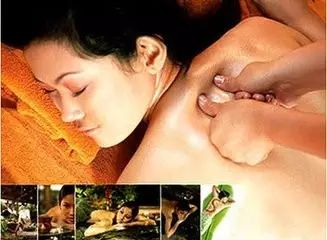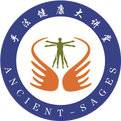
Nursing in Traditional Chinese Medicine: Supporting the Right Qi and Expelling Pathogenic Factors, Dietary and Medicinal Supplements, Regulating Mental and Emotional States, Balancing Activity and Rest.
The process of disease, in a certain sense, is a struggle between the zheng qi (正气, Right Qi) and xie qi (邪气, Pathogenic Qi). When the pathogenic factors prevail, the disease progresses; when the right qi prevails, the disease recedes. Therefore, to promote the favorable transformation of the disease, the focus of nursing should be on the comparison of the forces of the right and pathogenic qi, using methods to support the right qi and expel the pathogenic factors to facilitate recovery.

The so-called supporting the right qi means to assist the right qi, enhance physical constitution, and improve the body’s resistance to disease. Supporting the right qi often employs methods of tonifying deficiency.
1. Dietary and Medicinal Supplements
According to the patient’s condition of qi deficiency, yang deficiency, yin deficiency, or blood deficiency, different nursing methods are employed: for qi deficiency, use tonifying herbs such as Ren Shen (Ginseng), Huang Qi (Astragalus), Shan Yao (Chinese Yam), and Da Zao (Jujube); for blood deficiency, use Ejiao (Donkey-hide Gelatin), Pig Liver, Gui Yuan (Longan), and Da Zao; for yin deficiency, use Gou Qi Zi (Goji Berries), Jia Yu (Soft-shelled Turtle), and Yin Er (Tremella); for yang deficiency, use warming tonics such as Beef, Lamb, Dog Meat, and Chicken.
2. Regulating Mental and Emotional States
Fluctuations in mental and emotional states can often exacerbate or worsen the condition. Nursing should strengthen mental care, providing guidance, comfort, and encouragement to ensure that patients feel relaxed and happy, with smooth qi and blood, which is beneficial for supporting the right qi and promoting early recovery from illness.
3. Balancing Activity and Rest
Activity and rest should be determined based on the severity of the illness. In the acute phase of the disease, patients should rest to cultivate the right qi and reduce the consumption of qi and blood. As the condition improves or in the chronic phase, activity can be gradually increased according to physical strength to regulate the qi mechanism, promote joint mobility, and enhance physical constitution and disease resistance.
The so-called expelling pathogenic factors means to remove the pathogenic factors, allowing the right qi to stabilize. Expelling pathogenic factors often employs methods of draining excess. For example, in cases of external pathogenic invasion, sweating and releasing the exterior is appropriate; for food stagnation or food poisoning, methods such as digestive aids or emesis are suitable.
When applying the principles of supporting the right qi and expelling pathogenic factors in nursing, it is important to ensure that supporting the right qi does not leave behind pathogenic factors, and that expelling pathogenic factors does not harm the right qi. For patients in the acute phase, it is necessary to avoid nourishing foods or medicines to prevent leaving pathogenic factors; for patients with exterior symptoms, when using sweating methods to expel pathogenic factors, it is crucial to ensure that sweating is moderate and does not lead to excessive sweating that harms the right qi; for patients with yangming (阳明) organ excess, when using purging methods, it is important to ensure that the bowel is clear and heat is reduced without causing frequent diarrhea that harms the right qi.
In summary, when clinically applying the principles of supporting the right qi and expelling pathogenic factors, it is essential to flexibly adapt to the actual condition of the disease. By supporting the right qi, the right qi is strengthened, and by expelling pathogenic factors, the invasion and interference of pathogenic factors can be eliminated, achieving the goal of expelling pathogenic factors and stabilizing the right qi.

